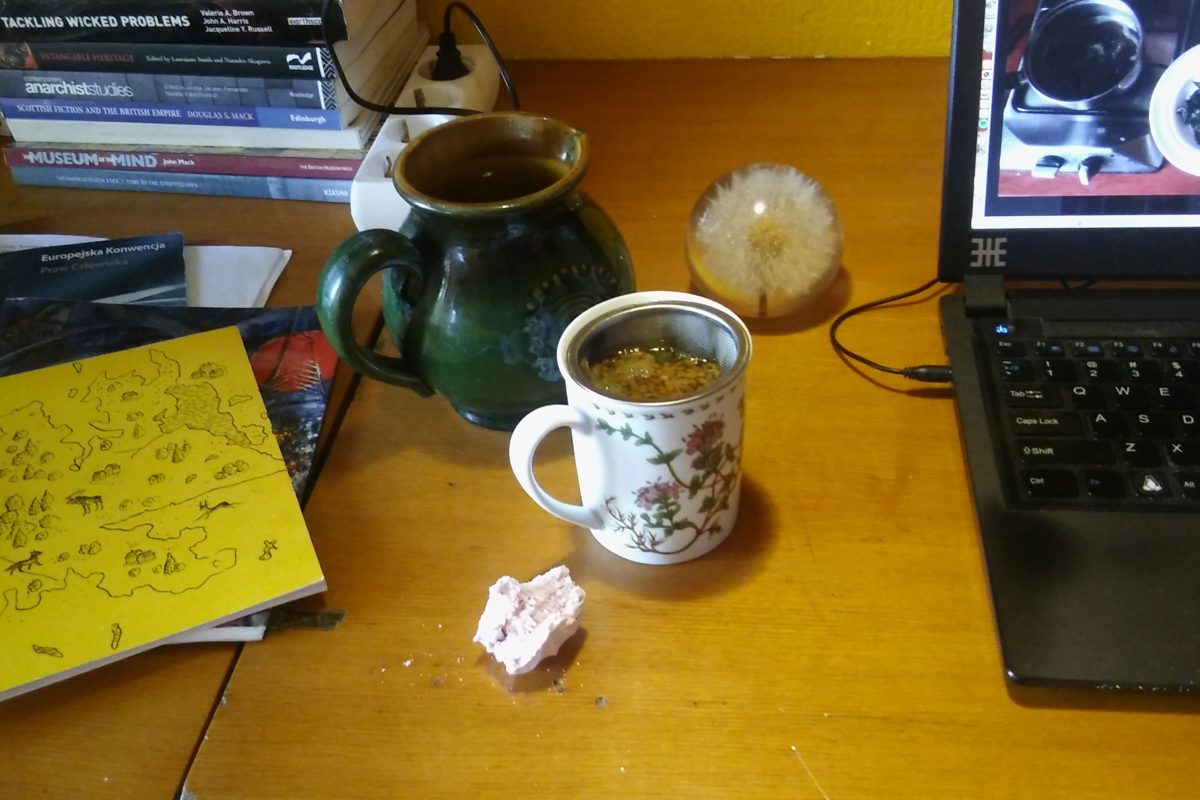3 Dec 2018
Events
Informal Strolls Around the Island
The market calls for emancipatory responses
In a series of three public events always on Tuesdays in the island of Suomenlinna, Alexander Fleischmann and Andrew Gryf Paterson invite guests to informal ‘in progress’ strolls around the island, to have discussions on site, probably include short readings, and prepare dinner to eat together afterwards.
The strolls address questions around establishing emancipatory work-spaces—aswell as participatory and/or open “artivistic” fieldwork—and their (queer) connections to inequalities. In order to structure the discussions, each Tuesday shall be dedicated to a topic related to these questions.
The first stroll’s discussion topic Undisciplinarity raises questions of what does it mean to produce knowledge that doesn’t easily into any particular domain. Various connections between Hierarchy and value to be discussed during the second stroll might bring up questions of valuation in everyday practices and the hierarchies connected to it. The last stroll focuses on the topic of Dialogue to discuss the forms of conversation and collaboration that interest us.
Also, as ‘Sharing is Caring’ and even if there is too much loaded up on the table, social media wall, suitcase or hard disk in advance unread, these points of departure can allow for conversation, filtering and getting curious about the topics. Recognising the nature of economies, and the surpluses that are afforded to societies might help to reconnect with possibilities beyond the hype of the latest new, focusing on what can be inherited, socially-intangibly and naturally-materially. What we bring with us from our upbringing, culture, and personal experience are the best starting points for discussion on our topics.
Informal strolls around the island – Ongoing discussion topics:
Meeting point: HIAP Suomenlinna
Tuesday, 23 August, 17.00: Undisciplinarity
Tuesday, 30 August, 17.00: Hierarchy and value
Tuesday, 6 September, 17.00: Dialogue
A final presentation event takes place on Thursday, 8 September, 2016, 2pm at HIAP Project Space.
The strolls around Suomenlinna and the dinner events are part of the project ‘The market calls for emancipatory responses’, conceptualized as a collaborative exchange coordinated by HIAP Helsinki and das weisse haus in Vienna. This more formal presentation event gives a report and reflection at the half-way point.
Alexander Fleischmann works as a researcher at the Institute for Gender and Diversity in Organizations, WU Vienna University of Economics and Business, on his PhD on alternative forms of organizing and anti-discrimination. His previous appointment was at the Academy of Fine Arts Vienna where he was responsible for the Office for Equal Opportunities and Gender Studies. He graduated in both Business Studies (2005) and Gender Studies with a minor in Art History (2015) at the University of Vienna. His last works include a thesis on Jacques Lacan’s concept of the subject in relation to the work of Félix González-Torres as well as the book „Kunst Theorie Aktivismus“ edited together with Doris Guth on the connections between artistic, theoretical and activist anti-discriminatory practices.
Andrew Gryf Paterson ‘Artist-organiser’, cultural producer, educator and independent researcher. Specialises in developing and leading inter- and trans- disciplinary projects exploring connections between art, digital culture and science, cultural activism, ecological and sustainability movements, cultural heritage and collaborative networks. He works across the fields of media/ network/ environmental arts and activism, pursuing a participatory practice through workshops, performative events, and storytelling. What is left behind as social, digital, material and ephemeral residue of ‘being t/here’ has been a consistent concern. Emerging from a 4-year period of employment with Pixelache Helsinki developing and facilitating an around-the-year peer-learning environment for trans-disciplinary practice, his base is Helsinki, with travel routes between Aizpute-Riga (Latvia), and Strasbourg-Ruhr (France-Germany) in 2016, especially elaborating an ongoing ‘Cultural Heritage as Resource’ practice-led research theme, and a future focus on migrant epistemologies.

